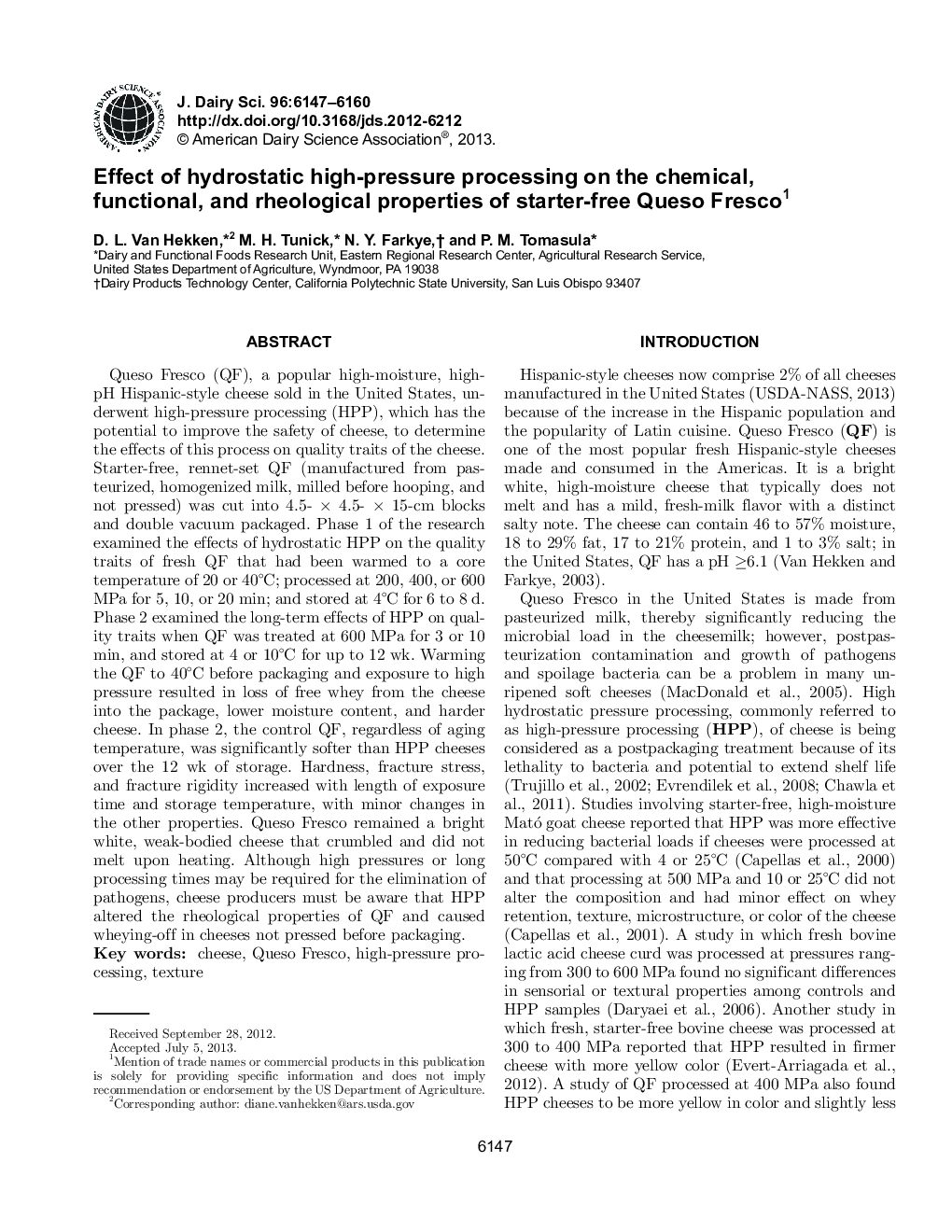| Article ID | Journal | Published Year | Pages | File Type |
|---|---|---|---|---|
| 10975877 | Journal of Dairy Science | 2013 | 14 Pages |
Abstract
Queso Fresco (QF), a popular high-moisture, high-pH Hispanic-style cheese sold in the United States, underwent high-pressure processing (HPP), which has the potential to improve the safety of cheese, to determine the effects of this process on quality traits of the cheese. Starter-free, rennet-set QF (manufactured from pasteurized, homogenized milk, milled before hooping, and not pressed) was cut into 4.5- Ã 4.5- Ã 15-cm blocks and double vacuum packaged. Phase 1 of the research examined the effects of hydrostatic HPP on the quality traits of fresh QF that had been warmed to a core temperature of 20 or 40°C; processed at 200, 400, or 600 MPa for 5, 10, or 20 min; and stored at 4°C for 6 to 8 d. Phase 2 examined the long-term effects of HPP on quality traits when QF was treated at 600 MPa for 3 or 10 min, and stored at 4 or 10°C for up to 12 wk. Warming the QF to 40°C before packaging and exposure to high pressure resulted in loss of free whey from the cheese into the package, lower moisture content, and harder cheese. In phase 2, the control QF, regardless of aging temperature, was significantly softer than HPP cheeses over the 12 wk of storage. Hardness, fracture stress, and fracture rigidity increased with length of exposure time and storage temperature, with minor changes in the other properties. Queso Fresco remained a bright white, weak-bodied cheese that crumbled and did not melt upon heating. Although high pressures or long processing times may be required for the elimination of pathogens, cheese producers must be aware that HPP altered the rheological properties of QF and caused wheying-off in cheeses not pressed before packaging.
Related Topics
Life Sciences
Agricultural and Biological Sciences
Animal Science and Zoology
Authors
D.L. Van Hekken, M.H. Tunick, N.Y. Farkye, P.M. Tomasula,
